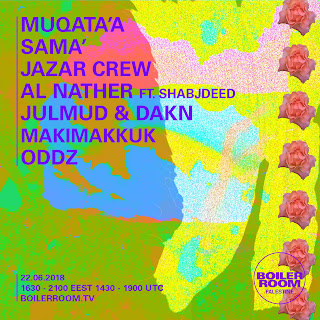by Lois Geal
One of the things that made Macklemore’s Gaza protest rap “Hind’s Hall” so electrifying when it dropped on May 6 is how unexpected it was. It wasn’t just that Macklemore, who hasn’t really seemed culturally relevant since his notorious Grammy win over Kendrick Lamar a decade ago, was suddenly headline news. It was that no one, relevant or not, seemed to be making protest music anymore, least of all about the Israel-Hamas war.
Macklemore’s anthem takes aim at Israel’s brutal assault on Gaza, where more than 38,000 Palestinians have been killed, following the deadly October 7th attacks.
The song comes at a time when student protests around the country are pushing the conflict and the Western world’s role in it to the forefront of cultural debate. Though Macklemore doesn’t have the reputation for political activism that other artists have, it’s not for lack of trying: He’s been producing politically themed music ever since his debut album in 2005.
Macklemore also occupies a rare position: As he himself says in a “Hind’s Hall” verse, his status as an independent artist, as well as a white one, allows him to take a bold political stance. Most artists would risk career-ending repercussions for speaking out, especially about such a polarized subject.
The post-Trump era has been a dormant period for protest music, though the current revival of campus activism could usher in an adjacent revival for the genre. If “Hind’s Hall” hints at a return, there are other complicating factors at play when we think about what protest music means - even in contemporary America.
This summer, in the de-facto capital of Palestine, Ramallah, world renowned music platform Boiler Room hosted Boiler Room Palestine for the first time in its history. This was not only music history but political history too; making a strong activist statement.
Boiler Room Palestine arranged for a line-up of local talent ranging from hip-hop to techno, the first time such a wide-spectrum of genres were included in a single performance.
Artists included Muqata’a, Jazar Crew, Al Nather and Shab Jdeed, Julmud, Dakn, Makimakkuk and Muktafeen, DJ ODDZ, and SAMA’.
People from around the world tuned in to see the show making music history and were able to see a different side of Palestine, one not tainted by media agendas.
A Boiler Room Instagram post relating to the event highlighted the artists and their circumstances, stating, “Living in the Ramallah bubble with limited transportation outside of the city, due to military checkpoints, music is a way to escape...”
Boiler Room Palestine represented musicians from Ramalah, as well as Palestinian artists in Haifa and Jerusalem. This link between artists is important.
It bypasses the restrictions Israel puts on Palestinians, geographically separating them wherever possible. That the artists came from both Palestinian and Israeli territories is a form of resistance against the continued effort to separate and break the spirit of the Palestinian people.
The show of unity between Ramallah, Haifa, and Jerusalem reminds the international audience that Palestinians remain a united people.
Muktafeen, also known as Zaghmouri, remarked, “This marks the independence and the beginning of the peak of visual and acoustic spatial definition of Palestine, which uniquely has no borders between Palestinian artists within West Bank, Jerusalem, and Israel.”
SAMA’, a Techno DJ on the show’s roster, shared, “The Israeli narrative suggests their presence in Palestine thousands of years ago justifies their current occupation. In other words, they have constructed a false sense of legitimacy, built around a reconstructed, fantasised, and ancient past. By creating cultural events into Palestine, we participate in writing contemporary Palestinian history, making new memories, proving we are alive, active and that our culture is an ongoing, contemporary process.”
Edited by Emily Duff


